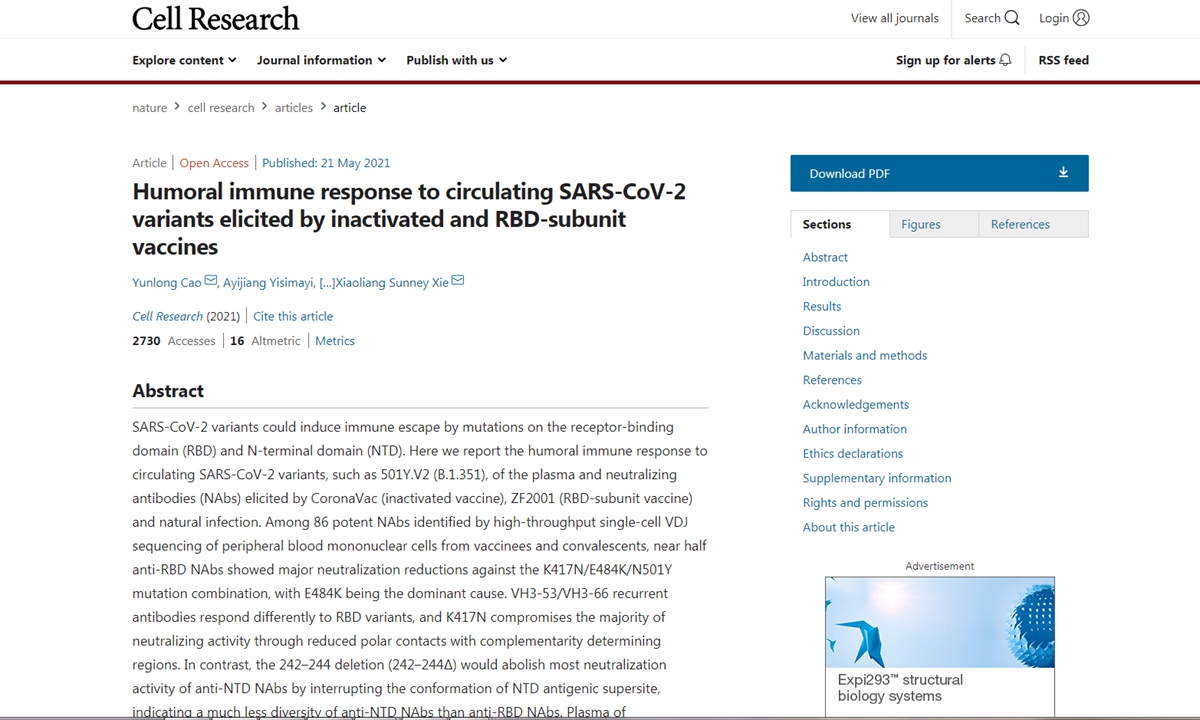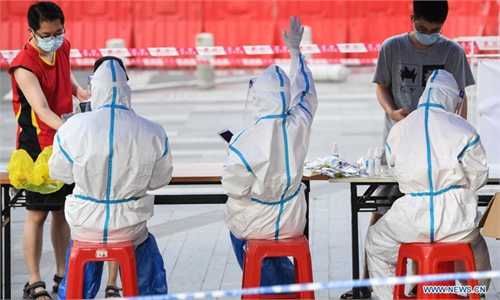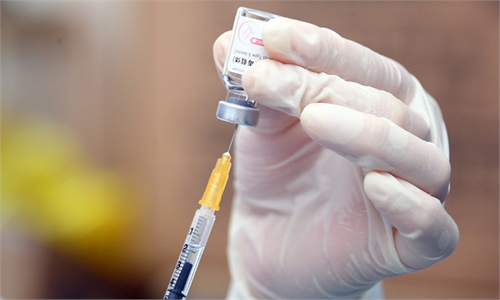Peking University researchers find third-dose RBD-vaccine can help combat COVID-19 variants

Peking University said that one of its scientific research teams has published an article in Nature's Cell Research, which suggested that the deployment of RBD-vaccines, through a third-dose boost, may be ideal for combating COVID-19 variants when necessary, especially for those carrying mutations that disrupt the N-terminal domain (NTD) supersite. RBD is an abbreviation of receptor-binding domain. Photo: Screenshot from Nature
Peking University said that one of its scientific research teams has published an article in Nature's Cell Research, which suggested that the deployment of RBD-vaccines, through a third-dose boost, may be ideal for combating COVID-19 variants when necessary, especially for those carrying mutations that disrupt the N-terminal domain (NTD) supersite. RBD is an abbreviation of receptor-binding domain.
The top Chinese university announced the discovery on Chinese Twitter-like social media platform Sina Weibo on Monday. A report titled "Humoral immune response to circulating SARS-CoV-2 variants elicited by inactivated and RBD-subunit vaccines" by the team of Xie Xiaoliang and his colleagues from the university's Biomedical Pioneering Innovation Center and Beijing Advanced Innovation Center for Genomics was published in Cell Research on May 21.
The team used high-throughput single-cell sequencing, cryo-electron microscopy study, virus neutralization experiments and other technical means to analyze the response of plasma and induced neutralizing antibodies to current circulating mutants such as B.1.351, also known as 501Y.V2, which initially emerged in late 2020 in South Africa. The plasma and induced neutralizing antibodies came from patients inoculated with the Sinovac inactivated vaccine and ZF2001 (RBD-subunit vaccine) by Anhui Zhifei Longcom Biologic Pharmacy, as well as those who recovered from COVID-19.
The team noted that RBD-subunit vaccines exhibit markedly higher tolerance to 501Y.V2 than convalescents, since the elicited anti-RBD neutralizing antibodies display a high diversity and are unaffected by NTD mutations.
The report said that an extended gap between the third and second doses of ZF2001 leads to better neutralizing activity and tolerance to 501Y.V2 than the standard three-dose administration, which uses a 30-day gap between the third and second doses. In the study, the gap was extended to 110 days.
Global Times


